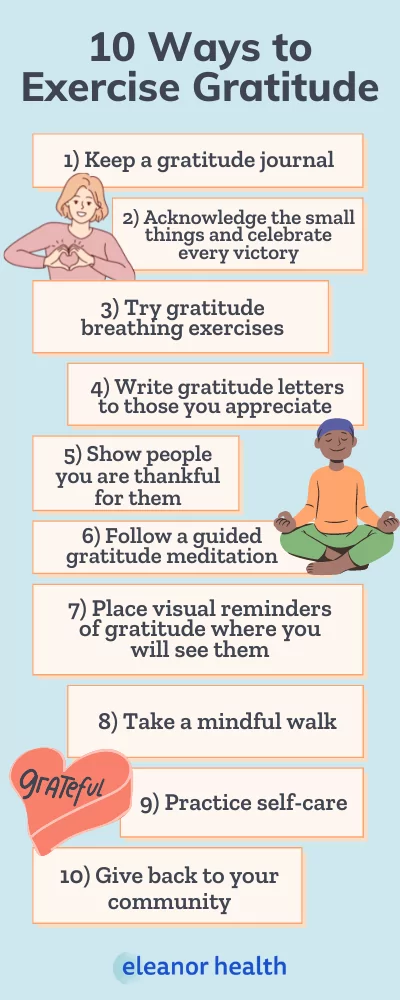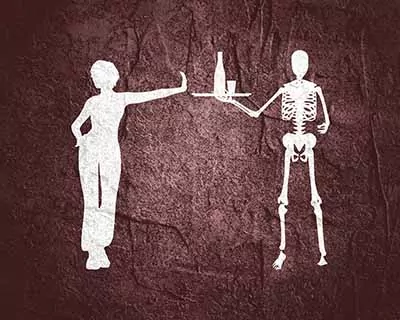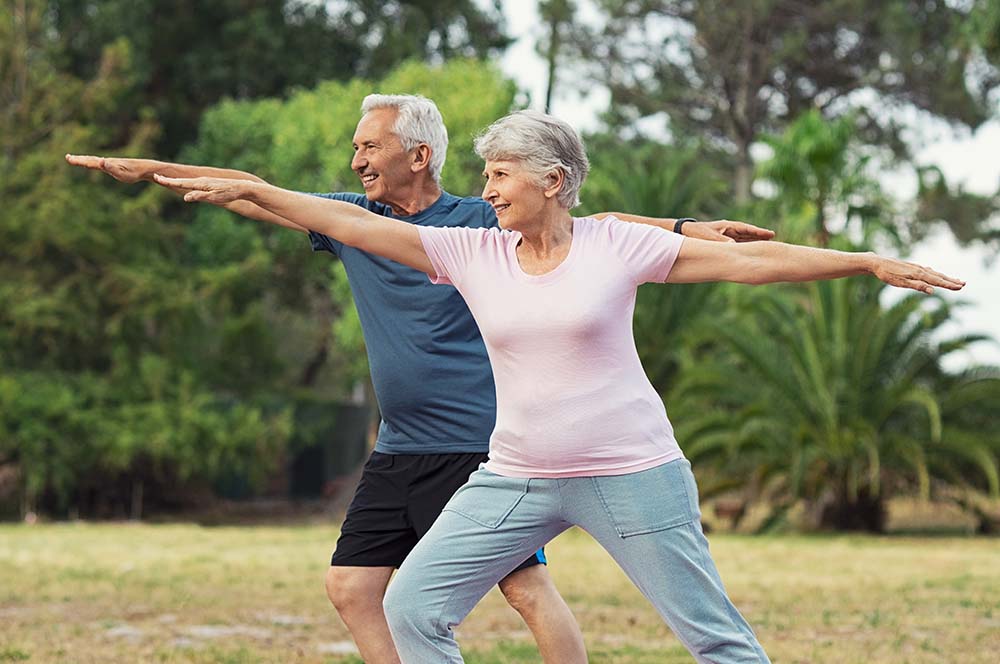When identifying the most important parts of substance use disorder (SUD) recovery, we often think of medication and therapy appointments. However, something we seldom connect to recovery is the power of gratitude and its effect on our mental well-being. Although the practice of gratitude may seem unnecessary in the grand scheme of your recovery journey, it actually plays a massive role in one’s susceptibility to experiencing and noticing the positives in recovery. Therefore, gratitude is likely more essential in recovery than you think. Here’s why!
Gratitude can be defined as one’s inclination to be mindful and appreciative of what is good in our lives and return the kindness we have received back into the world. In more ways than one, the intentional practice of gratitude is very similar to mindfulness, which is the art of staying fully present and acknowledging all aspects of the present (the good and the bad) with grace and acceptance. When combining gratitude mindfulness, you create a strong foundation that helps keep your perspective on life balanced, present, and positive.
Many psychologists, philosophers, and even Buddhist monks have explored the power of combining a mindful and thankful mindset in our everyday lives, describing how it aids us in reaching our “highest potential of self” [1].
So, what does any of this have to do with recovery from addiction? Although different for everyone, SUD recovery tends to be a challenging portion of one’s life. Many individuals report feeling hopeless, depressed, and angry towards themselves during addiction recovery [2]. These negative emotions can drastically affect one’s outlook on life, shifting to a perspective that cannot appreciate small joys, successes, or blessings.
Gratitude, referred to as one of the “foundational virtues in the creation of happiness” [3], works at combatting the negative emotions that may be present in recovery. The conscious act of noticing and appreciating the positives in life and outwardly exuding positive energy and thankfulness contributes significantly to one’s happiness and satisfaction with life circumstances. Individuals who are more appreciative of their life, the people in it, and their own strength often feel more in control of their lives and emotions. These feelings are essential during a time when things may feel beyond one’s control. It may also help individuals view recovery as a challenge that will help them grow instead of as an obstacle that could overtake them.
It’s not that practicing gratitude will help you recover exponentially faster or with no hardship, but rather being grateful will help cultivate feelings of joy that will influence a more positive recovery journey overall.
A handful of research studies attest to how practicing gratitude positively affects one’s well-being, which then influences a more optimistic recovery journey. For example, Robert Emmons, a professor at the University of California, Davis, is one of the leading researchers in gratitude studies. He and his colleagues conducted multiple research studies regarding the impact of gratitude on physical health, psychological well-being, and our relationships with others. They tested whether the simple incorporation of gratitude journaling for 3-weeks would positively affect these areas of participants’ lives. The results were promising.
Emmons and colleagues found that daily gratitude exercises positively influence physical, psychological, and social health in almost all participants, regardless of age [4]. The results were as follows:
Other research studies support these findings, showing that practicing thankfulness for others, your surroundings, and yourself increases self-esteem [5] and that practicing gratitude increases one’s likelihood of seeking health care [6]. Researchers find that gratitude is especially important for individuals in SUD recovery with the goal of being abstinent. Research results claim that “abstinent individuals with high gratitude were abstinent six months later,” suggesting “gratitude exercises might be contraindicated for clients who are drinking frequently and have abstinence as their treatment goal” [7].

Simply recognizing what you are grateful for is already beneficial for your mental and physical health, but writing these down only increases these benefits. Multiple studies have shown that writing a list of things you are thankful for each day not only increases positive feelings, like happiness, but bolsters a sense of generosity [8], motivates people to eat healthier [9], and decreases feelings of depression [10]. That’s a lot of healthy qualities that a simple gratitude journal can bring to your life! To keep a gratitude journal, dedicate 5-10 minutes per day (preferably at night before you go to sleep) to list 3-5 things you are grateful for. You can do this in a physical notebook or even download an app reminding you to enter your daily list!
Although it would feel great to celebrate and be grateful for big wins every day, it isn’t realistic for most people. Gratitude shouldn’t only be practiced when something amazing happens, like receiving a job offer at your dream career or seeing a long-distance friend. These things certainly deserve celebration and appreciation, but so does the small stuff! You can be grateful for minor occurrences as long as they make you happy. For example, a sunny day, enjoying your cup of coffee, a compliment from a stranger, completing an assignment, and even just waking up in the morning to conquer the day are all things you can be grateful for! Once you start paying more attention to the small details of your life and how they make you feel, gratitude will come more naturally and in abundance.
Recovery can be a time of high anxiety for many individuals. You are likely already aware that taking deep breaths is critical for managing anxiety and slowing down your rapid heart rate. So, what does gratitude have to do with this? Our emotions and thoughts are highly connected to our hearts and the rhythm of our heartbeats. Researchers tested which emotions calmed rapid heart rate the most during deep breathing. Results showed that gratitude was far more effective in calming heart rate than feelings of love, affection, courage, compassion, and more!
Although it is important to show gratitude inwards toward yourself, it is equally as important to push feelings of appreciation outwards toward those you care about. Spreading kindness to others and letting them know how much you recognize and value them being there for you on your journey can help you feel happier, especially during recovery. Whether a long letter or a quick text message, sharing your gratitude with someone will make their day a bit brighter!
Sometimes, writing a gratitude letter can seem daunting, especially if you have trouble putting your feelings into words. If you are not about words of affirmation, there are other ways to show people you appreciate having them in your life. Getting them a small gift/card, spending quality time with them, or doing a favor for them are all great ways to show gratitude that don’t require words.
The practice of gratitude, meditation, and deep breathing does wonders for calming your physical and emotional being. When you feel overwhelmed, anxious, or depressed, try a guided gratitude meditation to help ground you.
Whether the reminders are post-it notes on your bathroom mirror reminding you to be grateful for your strength, photographs of your family on your desk, or a “gratitude rock” reminding you to simply stay present and appreciative, visual reminders of gratitude work for many people. Once your mind starts associating these objects with gratitude, you will naturally begin to feel more positive every time you see them.
As mentioned earlier, mindfulness and gratitude go hand-in-hand. Taking a mindful walk is a great way to practice recognizing small details of the present surroundings you may have missed or taken for granted. Pay attention to the color of fallen leaves, how the outside air feels on your face, and the pace of your steps. Try to take everything in slowly, and recognize the parts of the walk that make you feel grounded and grateful!
Caring for yourself helps show gratitude for all that your mind and body do for you. Self-care looks a little different for everyone. Some may feel the most appreciative when completing a workout, while others may feel the most gratitude when letting themselves sleep in. Pay attention to what your body and mind need most, and listen to that! It’s the least you can do to care for yourself to function to the best of your ability.
Many individuals report that community service and volunteering were very valuable to them during their recovery journey [11]. It helped them put their energy into something altruistic and positive, giving them healthier self-esteem and a sense of self. Gratitude is circular—reaching out and helping others makes them grateful and brings gratitude back to you!
Eleanor Health is here to help you build your confidence and momentum towards the future you want. We provide treatment services for adults with alcohol, opioid, and other substance use disorders. We are currently located in Louisiana, Massachusetts, North Carolina, New Jersey, Ohio, Texas, and Washington.
 Protecting Your Addiction Recovery: Setting Boundaries During the Holidays
Protecting Your Addiction Recovery: Setting Boundaries During the Holidays
 Sober Party Tips for Halloween
Sober Party Tips for Halloween
 6 Benefits of Exercise in Addiction Recovery
6 Benefits of Exercise in Addiction Recovery